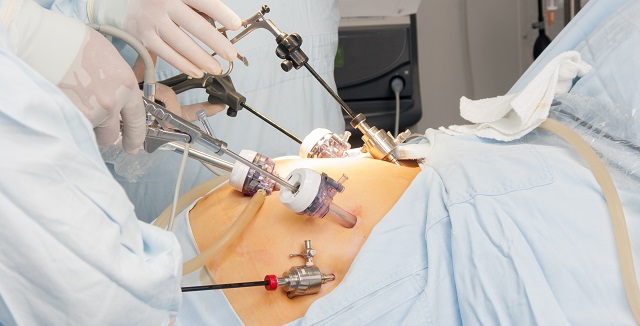
Bariatric surgery is a collection of gastric bypass and other weight-loss surgeries that involve making changes to the digestive system to help with weight loss. This is conducted as a last resort when exercise and diet have been unsuccessful in the weight loss for a patient. In order to find out the best option for weight loss or other stomach-related problems, make sure to get an ultrasound in Lahore or your area.
There are different types of bariatric surgeries. While some procedures limit how much you can eat, other work by reducing the body’s ability to absorb nutrients. Some other ones end up doing both.
Types of Bariatric Surgery
- Roux-en-Y (roo-en-wy) Gastric Bypass
This procedure is the most common method of gastric bypass and is typically not reversible. It works by decreasing the amount of food you can eat at one sitting and reducing absorption of nutrients. The surgery involves creating a small pouch from the stomach and connecting the newly created pouch directly to the small intestine
- Sleeve Gastrectomy
In this procedure, about 80% of the stomach is removed, leaving a long, tube-like pouch. This smaller stomach then, becomes unable to hold as much food. It also produces less of the appetite-regulating hormone ghrelin, which may lessen the desire to eat.
- Biliopancreatic Diversion with Duodenal Switch.
This is a two-part surgery in which the first step involves performing a procedure similar to a sleeve gastrectomy. The second surgery involves connecting the end portion of the intestine to the duodenum near the stomach bypassing the majority of the intestine.
Reasons for Performing the Procedure
Bariatric surgery is conducted as a final resort when all else has failed. In addition to helping the person lose weight, it is done for reducing the risk of potentially life-threatening weight-related health problems. Such problems including the following:
- Nonalcoholic fatty liver disease (NAFLD) or nonalcoholic steatohepatitis (NASH)
- High blood pressure
- Heart disease and stroke
- Type 2 diabetes
- Sleep apnea
Prerequisites
Other than the fact that the procedure is quite expensive, it is not for everyone. Certain criteria must be met to qualify for the surgery.
Generally, it is conducted when the person’s body mass index (BMI) is 40 or higher (extreme obesity). Another case can be when the BMI is ranges from 35 to 39.9 (obesity), but the person also has a serious weight-related health problem (for example, type 2 diabetes, high blood pressure, or severe sleep apnea).
In some specific cases however, one may qualify for certain types of weight-loss surgeries if the BMI is 30 to 34 and s/he has serious weight-related health problems.
Outcomes
Results of the procedure vary from person to person. Gastric bypass and other bariatric surgeries can provide long-term weight loss but the amount of weight lose may depend on the type of surgery as well as the changes in lifestyle habits. It may be possible to lose half, or even more, of the excess weight within two years.
In addition to weight loss, the procedure may improve other weight-related conditions such as heart diseases, high blood pressure, obstructive sleep apnea, type 2 diabetes, nonalcoholic fatty liver disease (NAFLD) or nonalcoholic steatohepatitis (NASH), gastroesophageal reflux disease (GERD), or osteoarthritis (joint pain).However, bariatric surgery may not be effective in all cases and may also lead to certain side effects. Before opting for any sort of surgery, it is important to take a doctor’s option. Therefore, for correct advice on the best possible option of weight-loss for you, make sure to get an ultrasound in Karachi or your city.
